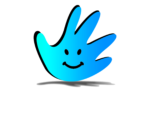The International Advisory Board of Happy Hands School serves as a valuable resource and support system for the school’s growth and development. Comprising esteemed individuals from diverse backgrounds and expertise, the Advisory Board provides guidance, expertise, and global perspectives to ensure that the school remains at the forefront of deaf education.
The Advisory Board members are renowned professionals, experts, and advocates in the field of deaf education, inclusive education, and related areas. They bring a wealth of knowledge, experience, and innovative ideas to the table. Through regular meetings, consultations, and collaborations with the school’s management, faculty, and staff, the Advisory Board contributes to the strategic planning, curriculum development, and implementation of best practices at Happy Hands School.
By leveraging the expertise and guidance of the International Advisory Board, Happy Hands School can continuously enhance its educational standards, empower its students, and make a positive impact in the field of deaf education both within the local community and on an international scale.
Board members page is being updated now…….
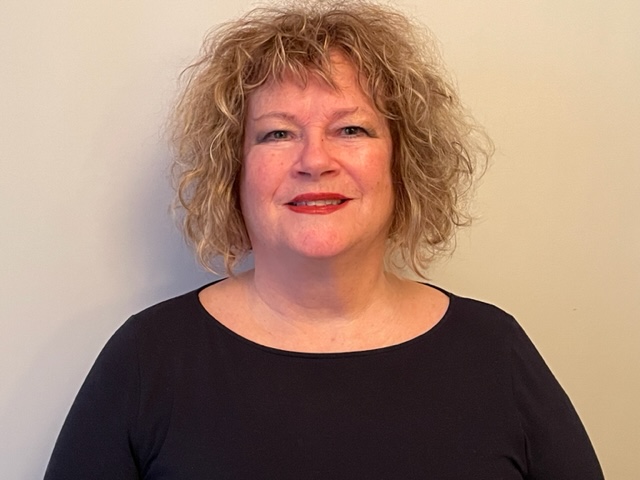
Tessa Padden Duncan, United Kingdom
I’m the Deaf child of Deaf Irish parents. I have a Deaf son and a hearing daughter – a CODA. So, I know the educational struggles D/deaf children and their parents face. I have been a trustee of the UK National Deaf Children’s Society and the British Deaf Association. My expertise lies in teaching British Sign Language (BSL), teacher-training and sign linguistics.
While visiting India I have met many D/deaf children there and I love their hunger to learn. I find the philosophy and achievements of Happy Hands School inspirational and am proud to support it.
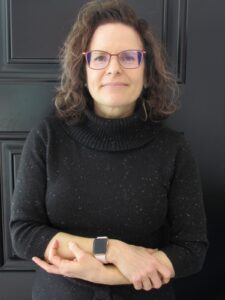
Kristin Snoddon, Ph.D, Canada
Kristin Snoddon, Ph.D is a deaf scholar and Associate Professor with the School of Early Childhood Studies, Toronto Metropolitan University, Canada. Her research and professional experience include collaborative work with deaf communities in developing
sign language and early literacy programming for young deaf children and their parents. Her longstanding program of research has focused on developing a parent American Sign Language curriculum that is aligned with the Common European Framework of Reference for Languages. Additionally, she analyzes policy issues related to inclusive education, sign language rights, and acquisition planning for ASL.
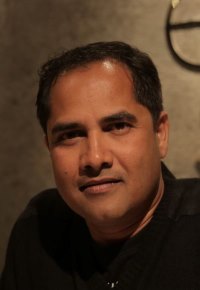
Sibaji Panda, India, Director and Founder
Sibaji Panda is the director and founder of Happy Hands School for the Deaf, located in Sonepur District, western Odisha, India. He is a passionate advocate for the education and empowerment of deaf children and has been working in this field for over 20 years. Sibaji is deaf himself, and he has faced many challenges in his own life due to his disability, which has fuelled his determination to create a better future for deaf children in India.
Sibaji Panda born and brought up in Odisha has moved back to India after serving 10 years as Senior Lecturer in Deaf Studies and Researcher at the International Institute for Sign Languages and Deaf Studies at the University of Central Lancashire, United Kingdom. He works on sign language research and development, training and teaching, He is the founder and Director at Happy Hands School for the Deaf, a bilingual school in rural India. Leading from front he is a pioneer in many Bi-lingual initiatives in India and a leader in Deaf education. Apart from this Sibaji also work towards green initiative and has established Shikha Eco Village in Odisha. He is currently pursuing a PhD from Dr. Shakuntala Mishra National University, Lucknow.
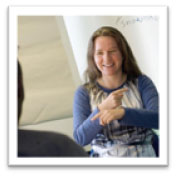
Prof. Ulrike Zeshan, UK/India
Prof Ulrike Zeshan is the chief mentor and academic advisor of Happy Hands School for the Deaf and an active member of Core International Advisory Board since its inception in 2016.
Professor of Sign Language Linguistics and Co-Director of the International Institute for Sign Languages and Deaf Studies (iSLanDS) at the University of Central Lancashire in the UK. Her team has pioneered research in the comparative study of sign languages worldwide, in the multilingualism of deaf sign language users, and in multiliteracies with deaf learners. Ulrike is also Co-Director of the transdisciplinary research institute PACT at the same university. She is a member of the European Academy of Sciences (elected in 2014) and was awarded an Honorary OBE (Queen’s Honour) in 2015.
Prof Zeshan has held several major grants from funders including the UK’s Economic and Social Research Council and the European Research Council. Since 2008, she has been involved in various initiatives for the development of training curricula and the implementation of training programmes with deaf learners in Ghana, Uganda, India, and Turkey. Her applied research has focused on literacy/multiliteracies and deaf peer education in countries of the Global South. As a result of her work on endangered sign languages in small-scale rural communities, Prof Zeshan worked as a consultant for UNESCO’s Atlas of World Languages in 2017. Through her social enterprise Ishara Press CIC, she has also pursued her interest in developing Serious Games for facilitating work with diverse stakeholders from different societal sectors, such as NGOs, public services, and academia.
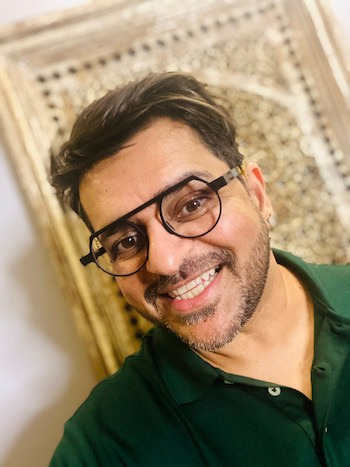
Dr. Alim Chandani, USA/India
Dr. Alim Chandani was born Deaf in Mumbai, India, and came to the United States in 1986. With degrees in new media/interactive design and rehabilitation and higher education studies, he received a doctorate in administration and supervision in special education from Gallaudet University.
Alim’s doctoral work brought him back to India in 2016, where he quickly got to work on successful initiatives, such as the Centrum-GRO Initiative, an intensive deaf empowerment and leadership training, and Access Mantra Foundation, which provides an online one-stop center with resources and services for Deaf people. As a result of his innovative work, Alim has received multiple prestigious awards such as the NCPEDP Mphasis award and the Bharti Changemaker award.
Alim currently serves as the International Relations Manager at the Gallaudet University Office of International Affairs. He also serves as a consultant for Hear a Million in partnership with Enable India; this program aims to enabling one million deaf people to become changemakers. One way this is happening is through an incubator program that trains Deaf Indians to establish their own non-profit organizations or businesses.
A social entrepreneur, Alim recently launched Freedom to Sign™, a social apparel business that promotes Indian Sign Language and Deaf artists. Alim strongly believes in showing the Deaf community around the world that “impossible dreams can become possible.”

Kang-Suk Byun was born in Jeonju, South Korea, and grew up with Korean Sign Language as his native language, acquired from his deaf parents. In 2012, he obtained a master’s degree in Theoretical Linguistics from Chungnam National University by analyzing and categorizing gender-related verb vocabulary in Korean Sign Language using morphosyntactic analysis. He was later invited to the doctoral program as a student position within the Language & Cognition group at the Max Planck Institute for Psycholinguistics. After completing his PhD coursework, he has been actively involved in the development of Korean Sign Language by teaching Sign Language Linguistics and Conversation Analysis at Kangnam University and Korea National University of Welfare. Currently, he is working as a researcher and teacher in the MA/PhD program at Kangnam University (Yongin) and participating in the Korean Sign Language Corpus Project as a researcher. In addition, he is part of the research team that is preparing the KSL national proficiency exam, which is expected to be launched soon. As a postdoc at Radboud University, he is continuously conducting cross-signing research in addition to his other academic pursuits.
